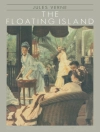In ‘Piping Hot!’ (Pot-Bouille), Émile Zola masterfully exposes the intricate and often sordid tapestry of Parisian life during the Second Empire. This novel, the tenth installment in Zola’s Rougon-Macquart series, employs a naturalistic literary style that meticulously details the everyday struggles and moral complexities of a group of bourgeois residents in a French boarding house. Through a lens of social realism, Zola captures the essence of ambition, hypocrisy, and the quest for social ascent, while his vivid characterizations offer a nuanced understanding of the human condition amidst the fervent backdrop of urban modernization. Émile Zola, an influential figure in the naturalism literary movement, was deeply influenced by his personal experiences in a rapidly industrializing France. His commitment to portraying the darker aspects of society stems from a desire to unveil the underlying social injustices and human behaviors. Zola’s exposure to working-class struggles and his passions for social reform led him to construct complex narratives that examine the interplay of environment and heredity on individuals’ lives, culminating in the compelling characters of ‘Piping Hot!’ This novel is a crucial read for those interested in the foundations of modern literature and social commentary. Zola’s keen observations and gripping narrative not only prefigure the concerns of contemporary society but also challenge readers to reflect on their own ethical boundaries. ‘Piping Hot!’ invites you to immerse yourself in its richly textured world, making it an essential addition to the canon of literary realism.
About the author
Émile Zola (1840–1902) was a French novelist, playwright, journalist, and a paramount figure in the literary school of naturalism. He is widely acknowledged as a major influence on the shaping of modern literature, particularly for his contributions to the development of a socio-critical narrative form. Zola’s legacy includes an immersive collection of works known as the Les Rougon-Macquart, a twenty-volume series that intricately maps the effects of environment and heredity on the lives of a fictional family during the Second French Empire. ‘Piping Hot!’ (‘Pot-Bouille’), one of the novels in this series, provides a scathing critique of the hypocrisy of the bourgeoisie’s moral codes under the veneer of Parisian apartment life. Zola’s naturalistic approach infused his characters with psychological depth and complexity, allowing for a profound examination of society’s impact on the individual. His writing style was marked by a commitment to the scientific method, as he meticulously researched each milieu he depicted, aiming to provide an authentic narrative experience that could both entertain and inform readers about contemporary social issues. Zola’s contribution to literature and his role in the Dreyfus Affair—wherein he fearlessly accused the French government of anti-Semitism and famously proclaimed ‘J’accuse’—cemented his status as a seminal figure in both literature and political activism. Despite his passing in 1902, Zola’s works continue to be celebrated for their incisive social commentary and their pioneering narrative structure.












